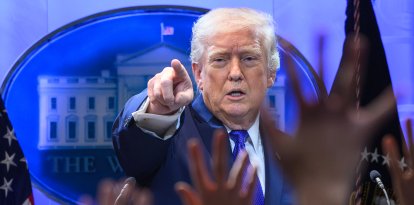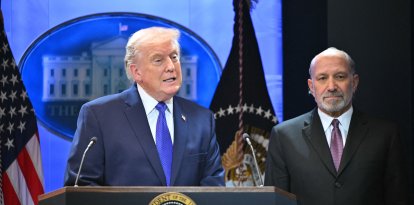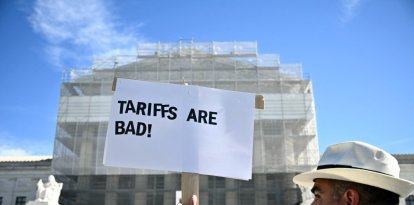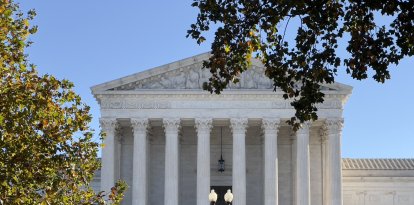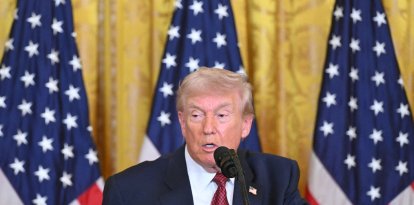Analysis
Eliminating the Electoral College, the latest (old) Democratic proposal to take flight
Several Democratic senators are reviving a 24-year-old initiative from Dick Durbin to make the winner of the presidential elections the candidate who wins the popular vote. Republicans claim the proposal is "trampling on the Constitution" to try to regain power.

Map of the U.S. with number of delegates by state in a past election.
The Democratic dismay over Kamala Harris' defeat against Donald Trump continues to make itself felt among party titans. The lack of proposals to stir voters in the midst of a civil war for the identity of the party between the woke wing and those who want to return to more traditional values has led to old ideas being dusted off and rehashed. Thus, several Democratic senators, led by Dick Durbin, have reintroduced a constitutional amendment that he introduced 24 years ago to eliminate the Electoral College.
The paradoxical thing about Durbin's approach is that, despite the fact that in the past election the popular vote went for Donald Trump, the senator for Illinois went back to his proposal from 2000, when George Bush Jr. prevailed over Al Gore after a close count, in which the popular vote ultimately went to Gore. The situation was repeated in 2016, when Trump prevailed over Hillary Clinton thanks to the number of electoral votes, despite totaling fewer ballots than the Democrat.
'End the undemocratic Electoral College'
Durbin won the support of his colleagues Brian Schatz and Peter Welch to reintroduce an amendment to the Constitution to "end the undemocratic Electoral College," as announced in a joint press release. "In 2000, before the general election, I introduced a bipartisan resolution to amend the Constitution and abolish the Electoral College. I still believe today that it is time to retire this 18th century invention that disenfranchises millions of Americans. The American people deserve to choose all their leaders, and I am proud to support this effort with Senators Schatz and Welch to empower voters," Durbin said.
Schatz added that "in an election, the person who gets the most votes should win. It's that simple. No one’s vote should count for more based on where they live. The Electoral College is outdated and it’s undemocratic. It’s time to end it."
For his part, Welch noted that "our democracy is at its strongest when everyone’s voice is heard—and right now our elections aren’t as representative as they should be because of the outdated and flawed electoral college. I’m excited to partner with my friends and colleagues Senator Schatz and Chair Durbin on this important constitutional amendment, which will help empower every voter in every state."
'They will only support our foundational document when it helps them achieve power'
Republican lawmakers were quick to criticize the proposal, like Senator Mike Lee, who called it "a phenomenally bad idea." Rep. Andy Biggs called it an attempt by Democrats to "trample the Constitution." His colleague Burgess Owens went one step further by claiming that "the 'democracy-defending' party is attacking the Constitution again" and went on to list the latest moves by Democratic lawmakers: "Whether it's the Supreme Court, the filibuster or the Electoral College, the Democrats have proven that they will only support our founding document when it helps them achieve power."
However, the Electoral College is designed precisely so that the vote of the less populated areas carries weight in elections, and that the areas with the greatest number of residents are not excessively determinant in the designation of the White House tenant. If this were to be so, candidates could focus their campaigns exclusively on promises for these populations, discriminating against rural areas or states with fewer citizens.
















